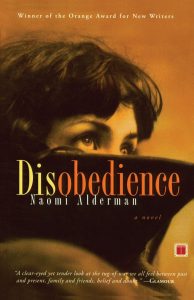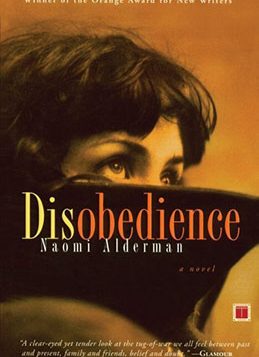 Disobedience
Disobedience
Directed by Sebastián Lelio
DISOBEDIENCE is a gripping drama based on the 2006 novel of the same name by Naomi Alderman. The film is directed by Chilean filmmaker Sebastián Lelio and stars Rachel Weisz, Rachel McAdams, and Alesandro Nivola.
Weisz, a London-born actress who comes from a Jewish family, plays Ronit, Rabbi Krushka’s estranged daughter who fled the suffocating traditions of her father’s Haredi community in London. After leaving, she made a career as a successful photographer in New York, but an unexpected phone call has brought her home for her father’s funeral. There she is reunited with her two childhood friends, Dovid and Esti. The former is Dovid Kuperman, a cousin who is her father’s heir apparent. She is shocked to learn that her adolescent love Esti has married Dovid, because she knows that Esti has always been drawn to her own sex. Indeed, she and Esti had been caught kissing as teenagers.
Ronit’s reception is anything but warm. Her father’s followers still shun her, having cut off all ties with her and even “killed her off” by omitting her name from his obituary notice in the local newspaper. Her aunt, on the other hand, warmly welcomes her back but goes along with excluding her from participating in funeral preparations that honor her father. Ronit, his only child, is completely left out of his will.
It is painful to watch Dovid struggle with his own guilt regarding the injustice of Ronit’s rejection and erasure and his obligations as her father’s successor within Jewish law. And then the long-smoldering romance between Ronit and Esti bursts into uncontrollable flames. Its consummation in a hotel room outside the confines of this insular community shatters the strict hetero-normality demanded by Jewish Orthodoxy. Everything comes apart, and each of them is forced to confront their own emotions and desires: Dovid must ask himself what to do if his wife is in love with another woman. When confronted by the community elders about the “situation,” which they consider a shameful abomination, he assures them that he “keeps his house in good order.” But in reality, he is struggling with his own sense of justice and the obligations of his faith. By the same token, both Ronit and Esti are wrestling with their love for each other and their respect and affection for Dovid.
Moreover, Ronit is mourning the loss of her father and his rejection of her, which is countered by the need to honor him according to Jewish tradition, despite everything. Esti has her own demons to confront, the simple fact that she has always been attracted to women and her desire to partake of the spiritual solace and security that her Orthodox community affords. Herein lies a tale of repressive orthodoxy, fraught with emotionally nuanced drama as the three friends wrestle with rejection, grief, authenticity, and the true meaning of freedom of choice and the responsibilities that go with it.

Disobedience isn’t a simplistic film about the insularity of a secretive Orthodox sect or even the story of a gay woman escaping her controlling husband in a loveless marriage. Rather, it is a story of the many forms that love can take and the hard choices required to live an authentic and fulfilling life. The central question for the LGBT audience in this film relates to the representation of the female body: Does the film allow lesbians to reclaim their own perspective or “gaze”?
“I think sex can be spiritual,” remarked Lelio in an interview, and many people would agree. Interestingly, in Orthodoxy—a point not evident in the film—the supposed obligatory sex act is seen by devout Jews as a deeply spiritual communion with Yahweh and the Shekinah at the moment of creation. So, Friday night sex, especially at midnight, is experienced as a joining with God’s procreative energies to produce a new life. Nivola tries to convey this through his performance, but McAdams, perhaps because of her character’s ambivalence, simply lies back and endures having sex with him. Understandably, there is nothing spiritual about it for her. For Esti, the real moment of spiritual truth takes place in the hotel room where she has her first authentic orgasm with Ronit. After this breakthrough there is no going back for any of the three. Each must face up to the truth of who they really are and what they really want.
There’s no doubt that this is a controversial movie. The film has predictably garnered some hostility from the Orthodox community, despite having had twelve Orthodox consultants to assure the authenticity of its portrayal of this secretive and insular community. While Lelio has said that he sees the sex scene as central to the movie—and to the criticism—I think it is the film’s resolution, which is amicable in a way that’s not supposed to happen under Orthodox law, that rankled these critics.
Dovid is the most complex of the characters. In the final scenes we find him doing a midrash on Rabbi Krushka’s final sermon dealing with the meaning of freedom. After a fearful struggle, he rejects the role of leading the congregation, saying he doesn’t have enough “understanding” to assume Rabbi Krushka’s mantle. He then goes home to Esti. Esti is torn by her own struggles related to the forthcoming birth of her child and her desire to make a new life outside the confines of the only world she has known and to find her authentic self.
Cassandra Langer is a freelance writer based in New York City.






